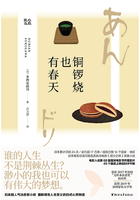'Fi's big anuf I bet I could hook a man quicker'n she can by usin' her tongue 'stead of her hands."Jane's scheme was not so bad a one but that it might be tried to advantage by those so disposed. Her matrimonial prospects, however, being still far in the future, it behooved her to make her present existence as tolerable as possible. She knew how much depended on Holcroft, and was unaware of any other method of learning his purposes except that of watching him. Both fearing and fascinated, she dogged his steps most of the afternoon, but saw nothing to confirm her mother's view that any spell was working. She scarcely understood why he looked so long at field, thicket, and woods, as if he saw something invisible to her.
In planning future work and improvements, the farmer had attained a quieter and more genial frame of mind. "When, therefore, he sat down and in glancing about saw Jane crouching behind a low hemlock, he was more amused than irritated. He had dwelt on his own interests so long that he was ready to consider even Jane's for a while. "Poor child!" he thought, "she doesn't know any better and perhaps has even been taught to do such things. I think I'll surprise her and draw her out a little. Jane, come here," he called.
The girl sprang to her feet, and hesitated whether to fly or obey. "Don't be afraid," added Holcroft. "I won't scold you. Come!"She stole toward him like some small, wild, fearful animal in doubt of its reception. "Sit down there on that rock," he said.
She obeyed with a sly, sidelong look, and he saw that she kept her feet gathered under her so as to spring away if he made the slightest hostile movement.
"Jane, do you think it's right to watch people so?" he asked gravely.
"She told me to."
"Your mother?"
The girl nodded.
"But do you think it's right yourself?"
"Dunno. 'Taint best if you get caught."
"Well, Jane," said Holcroft, with something like a smile lurking in his deep-set eyes. "I don't think it's right at all. I don't want you to watch me any more, no matter who tells you to. Will you promise not to?"The child nodded. She seemed averse to speaking when a sign would answer.
"Can I go now?" she asked after a moment.
"Not yet. I want to ask you some questions. Was anyone ever kind to you?""I dunno. I suppose so.""What would you call being kind to you?"
"Not scoldin' or cuffin' me."
"If I didn't scold or strike you, would you think I was kind, then?"She nodded; but after a moment's thought, said, "and if you didn't look as if you hated to see me round.""Do you think I've been kind to you?""Kinder'n anybody else. You sorter look at me sometimes as if I was a rat. Idon't s'pose you can help it, and I don't mind. I'd ruther stay here and work than go a-visitin' again. Why can't I work outdoors when there's nothin' for me to do in the house?""Are you willing to work--to do anything you can?"Jane was not sufficiently politic to enlarge on her desire for honest toil and honest bread; she merely nodded. Holcroft smiled as he asked, "Why are you so anxious to work?""'Cause I won't feel like a stray cat in the house then. I want to be some'ers where I've a right to be.""Wouldn't they let you work down at Lemuel Weeks'?" She shook her head.
"Why not?" he asked.
"They said I wasn't honest; they said they couldn't trust me with things, 'cause when I was hungry I took things to eat.""Was that the way you were treated at other places?""Mostly.""Jane," asked Holcroft very kindly, "did anyone ever kiss you?""Mother used to 'fore people. It allus made me kinder sick."Holcroft shook his head as if this child was a problem beyond him, and for a time they sat together in silence. At last he arose and said, "It's time to go home. Now, Jane, don't follow me; walk openly at my side, and when you come to call me at any time, come openly, make a noise, whistle or sing as a child ought. As long as you are with me, never do anything on the sly, and we'll get along well enough."She nodded and walked beside him. At last, as if emboldened by his words, she broke out, "Say, if mother married you, you couldn't send us away, could you?""Why do you ask such a question?" said Holcroft, frowning.
"I was a-thinkin'--"
"Well," he interrupted sternly, "never think or speak of such things again."The child had a miserable sense that she had angered him; she was also satisfied that her mother's schemes would be futile, and she scarcely spoke again that day.
Holcroft was more than angry; he was disgusted. That Mrs. Mumpson's design upon him was so offensively open that even this ignorant child understood it, and was expected to further it, caused such a strong revulsion in his mind that he half resolved to put them both in his market wagon on the morrow and take them back to their relatives. His newly awakened sympathy for Jane quickly vanished. If the girl and her mother had been repulsive from the first, they were now hideous, in view of their efforts to fasten themselves upon him permanently. Fancy, then, the climax in his feelings when, as they passed the house, the front door suddenly opened and Mrs. Mumpson emerged with clasped hands and the exclamation, "Oh, how touching! Just like father and child!"Without noticing the remark he said coldly as he passed, "Jane, go help Mrs.
Wiggins get supper."
His anger and disgust grew so strong as he hastily did his evening work that he resolved not to endanger his self-control by sitting down within earshot of Mrs. Mumpson. As soon as possible, therefore, he carried the new stove to his room and put it up. The widow tried to address him as he passed in and out, but he paid no heed to her. At last, he only paused long enough at the kitchen door to say, "Jane, bring me some supper to my room. Remember, you only are to bring it."Bewildered and abashed, Mrs. Mumpson rocked nervously. "I had looked for relentings this evening, a general softening," she murmured, "and I don't understand his bearing toward me." Then a happy thought struck her. "I see, Isee," she cried softly and ecstatically: "He is struggling with himself; he finds that he must either deny himself my society or yield at once. The end is near."A little later she, too, appeared at the kitchen door and said, with serious sweetness, "Jane, you can also bring me MY supper to the parlor."Mrs. Wiggins shook with mirth in all her vast proportions as she remarked, "Jane, ye can bring me MY supper from the stove to the table 'ere, and then vait hon yeself."















